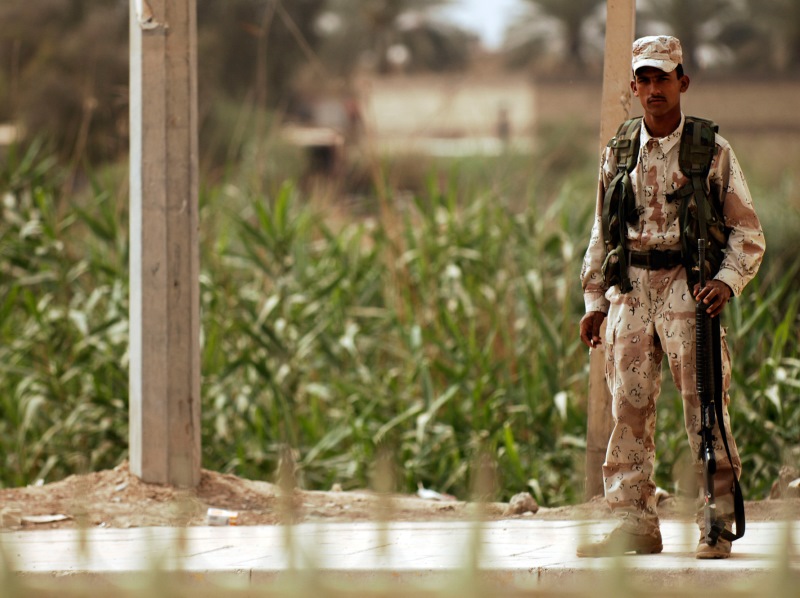 An Iraqi army soldier stands guard at a checkpoint in the Sadr district of Baghdad, Iraq, April 19, 2008. Photo: Tech. Sgt. William Greer, United States Forces Iraq, Flickr.
An Iraqi army soldier stands guard at a checkpoint in the Sadr district of Baghdad, Iraq, April 19, 2008. Photo: Tech. Sgt. William Greer, United States Forces Iraq, Flickr.
Since the beginning of the Iraq War in 2003, the weakness and illegitimacy of the Iraqi state has been exacerbated, if not caused, by very high levels of party and personal corruption, to a large extent shielded by the system of partisan political quota-sharing (muhasasa).
This project examined the nature of that corruption in both the institutions of the Government of Iraq (GoI) and the Kurdish Regional Government (KRG) by looking at the rapid expansion of government payrolls after 2003. The project focused on three specific ministries; the GoI Ministry of Defence, examining the issue of “ghost soldiers”, the Ministry of Higher Education and Scientific Research for a cross-government civilian comparison and the Ministry of Oil, as central to the funding of the political marketplace. It sought to judge how much of the corruption is driven by personal greed, how much is used to build networks of personal loyalty and how much is party political.
This project formed part of the Conflict Research Programme, funded by the UK Department for International Development to provide research and policy advice on how the risk and impact of violent conflict might be more effectively reduced through development and governance interventions.
Project Outputs
Research Team
Ali Al-Mawlawi | Principal Investigator
Ali is an independent consultant specialising in political economy and institutional reform. He is co-founder of the Iraq Policy Program, a training and mentoring scheme for young professionals in Iraq.